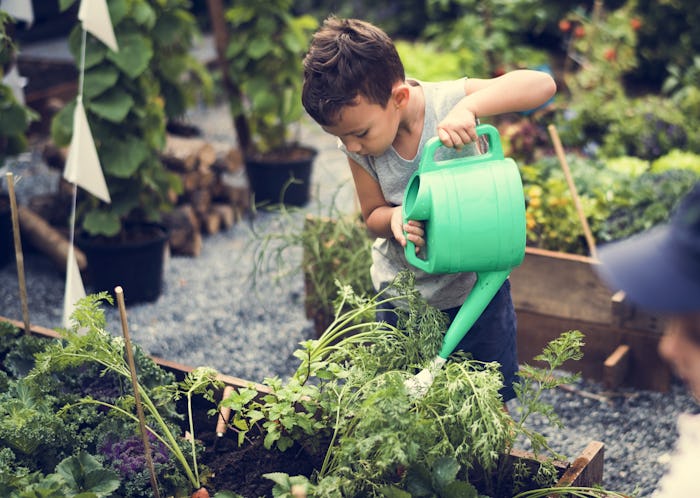Life

6 Small Household Changes You Can Feel Good About
This post is sponsored by All® Free Clear Pure.
Topics like climate change and clean water can make any parent worried about the world their child is going to inherit. And while there’s plenty that needs to be done at the national level to create changes that safeguard our environment, it's important to remember that change also begins at home. There are lots of small steps you can take to lead your family in adopting a more eco-friendly lifestyle — without totally disrupting the routine you worked so hard to establish.
To that end, we wanted to bring you a list of simple, family-friendly steps that can help you create greener habits every day. Most require minimal effort, making them easy to implement (and most importantly: easy to stick to). Plus, it’s never too early to teach your children how to be good stewards for the Earth. We only have this planet, and until living on other planets becomes a reality, we all need to do our part.
Here's how you can make a difference.
1. Try Growing Your Own Produce
The best way to be absolutely sure about where your produce is coming from is to grow it yourself. Consider diving into the world of home agriculture by starting a backyard or balcony garden. There are plenty of fruits, veggies, and even herbs that are easy to grow. Get the kids involved too and watch them have fun playing in the dirt and cultivating a green thumb (pun intended).
Pro tip: Keep those green vibes going when it comes to gardening cleanup. Try swapping your regular detergent for All® Free Clear Pure — it’s gentle on skin, 99 percent bio-based with a plant-based formula that’s biodegradable, and free of perfumes, dyes, and phosphates.
2. Ditch The Old-School Bulbs
There are plenty of reasons to introduce eco-friendly habits into your home life, but one obvious one is that you can actually save money by using less energy in the long run. If you’re still using incandescent bulbs, swap them out for bulbs labeled "CFL" or "LED." They use way less energy than standard bulbs and — bonus! — last a lot longer.
3. BYO Shopping Bags
Many cities are banning single-use plastic bags which means you’ll either need to pay for bags or bring reusable totes of your own. Make life easier (and Mother Nature happier) by investing in high-quality reusable bags. Get the kids involved by letting them each pick out a tote reflective of their personal style, then keep the bags stashed in your car to avoid leaving them behind.
Due to the current public health situation, some stores are not allowing reusable bags, so remember to check before you go!
4. Embrace Reusable Water Bottles
With concerns about water quality, not everyone is comfortable drinking unfiltered water straight from the tap. Try investing in reusable water bottles for the whole family, plus a water filtration device. Whether it’s one that attaches to your faucet or a pitcher you keep in your fridge, you’ll save money over time and will add less to our collective waste.
5. Turn Out That Light
If no one is in the room, then why are the lights on? Lighting an empty room only helps to waste energy. This is a bad habit many people practice, but it’s never too soon to break it. Make it a game with your kids by having them 'score points' every time they remember to shut off the lights when they leave a room. Once someone reaches 10 points, reward the family with a special treat like an ice cream outing or a movie night.
6. Go Paperless
Considering that pretty much all utility and financial institutions can do business online, it’s not necessary to get paper statements and bills every month. If you haven't already, now is the perfect time to select the “go paperless” option and have monthly invoices sent straight to your email. This is also a great way to help eliminate that countertop clutter that no household is immune to.
No matter what small changes work for you and your family, you can feel good knowing that a little bit goes a long way when it comes to making better choices for the planet — and for our children's future.